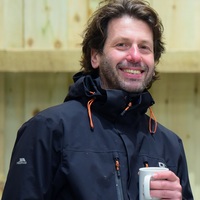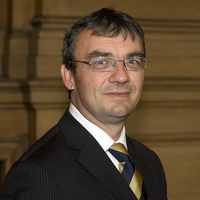The Public-Private Partnership in the Italian Satellite Telecommunication System Design: SIRIO and Italsat, 1969-1996
Infrastructure Finance in Europe. Insights into the History of Water, Transport, and Telecommunications, 2016
The expansion in telecommunications traffic urged the development of a satellite network infrastr... more The expansion in telecommunications traffic urged the development of a satellite network infrastructure at the end of the last Century. Telecommunications satellite presents high costs of development and technological risks. The project design for the Italian telecommunications satellite consists in a case of Public Private Partnership framework to induce risky and costly research and development of a public infrastructure.
This chapter compares the projects for SIRIO and Italsat satellites to highlight the differences in the partnership between the public buyer and the firms involved in two different procurement contracts. While the former suffers delay due to uncertainties about the technological requirements, in the latter case the partnership with a public agency has had the form of an agreement to purchase a service with specific requirements at a specific time in the future, creating incentives for innovation and on-time and on-budget implementation.











Uploads
Papers by Matteo Landoni
This chapter compares the projects for SIRIO and Italsat satellites to highlight the differences in the partnership between the public buyer and the firms involved in two different procurement contracts. While the former suffers delay due to uncertainties about the technological requirements, in the latter case the partnership with a public agency has had the form of an agreement to purchase a service with specific requirements at a specific time in the future, creating incentives for innovation and on-time and on-budget implementation.
We investigated a sample of 250 entrepreneurs and 120 spin-out companies to understand if an entrepreneur or a group of founders enter the same or a new market. Then, we explore how knowledge can recombine in a multi-founders team.
Our results contributes to the theory, suggesting spin-out entrepreneurs usually move to different and innovative industries. Also, our evidences support the positive effect of different knowledge
Despite some limitations, our contribution moves the comprehension of academic entrepreneurship toward a better understanding of the influences underlying different rates and behaviors of academic spin-offs.
Milan is considered one of the main startup cities in Europe and the first in Italy. Despite it is a matter of common perceptions instead of a scientific analysis, rankings on websites counting startups to measure the ability of a city to sustain the generation of a community of entrepreneurs -like Crunchbase and AngelList- found in Milan the best spot in Italy. Despite the city is far away from the top locations in terms of new business opportunity, corresponding to Berlin, London, and Tel Aviv, Milan benefits from a network of innovative tools such as incubators to facilitate entrepreneurship (Colapinto, 2011b), as well as it is home of many high technology firms, which lay on university departments for technology transfer (Friedman and Silberman, 2003).
Seven universities are located in the urban area of Milan. At least four of them adopt policies sustaining entrepreneurship, have created a Technology Transfer Office (TTO) and have generated academic spin-offs (Colapinto, 2011a), which are defined as new companies started by former or current university employees, researchers, or students founding their own firms in order to commercially exploit their research and inventions. Several studies have already explored the relevance of academic spin-offs in Italy (Antonelli, 2004; Baroncelli et al., 2000; Baroncelli, 2001; Cesaroni et al., 2005; Chiesa and Piccaluga, 2000; Dell'Anno, 2010; Grandi and Grimaldi, 2003; Lazzeri and Piccaluga, 2012; Palumbo, 2011; Piccaluga, 2011). Often spin-offs take advantage of available external managerial skills and incorporate them in the venture. Cluster theory expects to find the most available managerial experience in the relative technological specialization of the city (Niosi and Bas, 2001; Saxenian, 1996). Thus Milan is a suitable location for the development of academic spin-offs.
Research methods and sample
We collected data on the academic spin-offs generated during the 14 years between 2000 and 2013 in the city of Milan. The population consists of all 74 university spin-offs companies created within four Milan universities. We have sent a questionnaire to the academic entrepreneurs which provided responses from 34 spin-offs, corresponding to a response rate of around 45% percent of the total population.
We used both published data and survey responses to study the start and early development of academic spin-offs. Our hypothesis inquire the dependence of academic spin-offs on the existing regional advantage of industries in terms of technological relatedness, e.g. whether the impact of the introduction in the founding team of an industrial partner is conditioned to the availability of managerial skills in the location according to its industrial advantage.
Results and discussion
Academic spin-offs imply that at least one entrepreneur joined the venture thanks to her relationship and/or affiliation to the university (as we previously specified), further members of the entrepreneurial team often come from other fields than academia. The normal entrepreneurial team profile, which on average comprise 4.75 members, includes 0.85 non university partners and 3.9 academic entrepreneurs for each spin-off.
Our results show that the spin-offs performance is positively correlated to the industries which are overweighed in at local level in comparison with the normal distribution across the country varies according to the relative industry advantage of the local environment. Industrial expertise can be relevant to the development of competences. Then, interacting with industries will influence spin-offs performances when they correlate with the relative industrial advantage of the local setting. It means that in a given environment academic spin-offs tend to concentrate in some industries, those which count more players than the national average. Rational for this evidence may be the larger availability of managerial competence in the fields which show an higher degree of concentration in the specific local environment.
Universities may improve their ability to generate new business venture through well-designed policies and procedures. However, the spin-offs performance seems to be strongly influenced by the interaction with the local environment, i.e industries concentration and consistent competences and skills available at local level.
(spin-out) when a discovery allows her to pursue an entrepreneurial opportunity. The
discovery is the result of the employee’s knowledge accumulation made within the
firm. Then, such knowledge accumulation can flow out in a new entrepreneurial
opportunity. We call the new venture started autonomously by a former employee a
“spin-out.” While most studies analyze the nature of the spin-out at the firm level, we
argue that the success of a spin-out can be better understood by analyzing the prior
experience—in terms of knowledge accumulation—of the entrepreneur. The analysis
of several spin-out companies in the IT and bio-tech industries helps to confirm some
hypotheses built on the theory of spin-outs, contradicts others, and gives more insight
on employees’ knowledge mobility.
Public procurement gained attention in Europe because of the privatization program requested by the European integration process. Indeed, during the 80s, the Italian Government, along with other European countries, ended direct intervention in economy in most of its former State-holdings. However, it was able to sustain a typical Government related business such as aerospace by the establishment of a public institution, the Italian Aerospace Agency (ASI) in 1988.
The first stage of my research shows that the ASI policy of public procurement was able to drive the technological effort of the main Italian aerospace company and former State-owned, Finmeccanica, towards a rationalization of the industry at the national level and greater technological competitiveness. Finally, the tool has allowed the space subsidiary of Finmeccanica, Alenia, to join with French company Thales space division in a European leading actor on the global market for the high-technologies. "